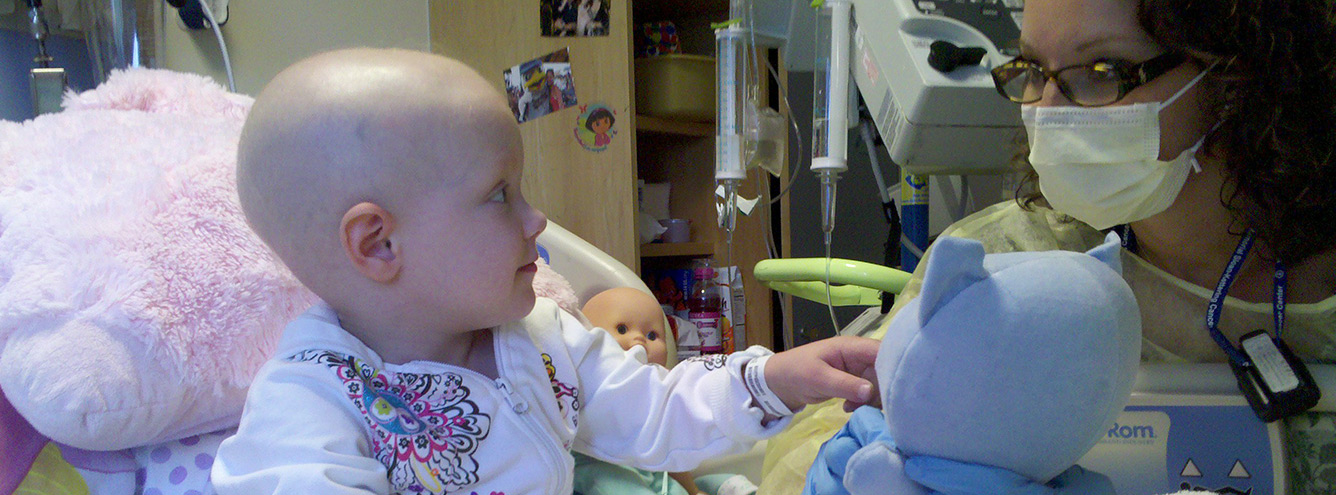Chemotherapy reduces the bone marrow’s ability to produce infection-fighting white blood cells.
A child’s ability to fight infection is monitored through blood tests, including Absolute Neutophil Count (ANC).
ANC of less than 1000 is described as neutropaenia. At this time, you need to take extra care to protect your child from infection.
Wash Hands
Frequent, thorough hand washing is vital at all times during chemotherapy. This is universally recognised as the most effective way to prevent spread of infection.
Use liquid soap rather than a bar. Lather well with clean warm water, ensuring all portions of the hands and lower arms are well scrubbed. Use baby wipes or antibacterial gel (dry soap) while away from home.
Always wash hands before handling food, after working or playing outside, and after using the bathroom or touching an animal.
Ensure all medical staff wash hands before touching your child. Insist that all family members and visitors do this too, adults and children alike. Explain the importance in protecting your child, to avoid misunderstandings.
Personal Care
Keep your child’s nappy/diaper area and skin creases clean and dry. Consider using disposable nappies during treatment.
Apply sunscreen when your child goes outside on warm days. Chemotherapy can make children sun sensitive, and sunburn is a potential site for infection.
Wash all small cuts or grazes with soap and water, then rinse with hydrogen peroxide and cover with a clean dressing.
Be aware that in a neutropaenic child, an infected wound may not exhibit the usual signs of redness or pain.
Do not use a humidifier as stagnant water can become a reservoir for contamination.
Reduce Infection Exposure
Clean your house regularly so dust does not gather. Vacuum regularly and clean surfaces with a damp cloth soaked in disinfectant to prevent dust moving into the air.
Remove all visible mould and mildew immediately.
Keep your child away from pre-school, restrict the number of visitors and avoid crowded places like shops, church or public transport.
If your child is school age, consider asking the school to send a letter to parents outlining the need for your child to be protected from illness. Request parents notify the school if their child is a little unwell, but intending to attend.
Monitor Temperature
Take your child’s temperature at the same time daily, or every 2-3 hours when unwell. Keep a record of all readings for comparison.
Never treat fever with aspirin, Motrin, or ibuprofen as they may reduce your child’s ability to clot blood. Ask the doctor before giving any medication not prescribed by the hospital.
At the Doctor’s Office / Hospital
Ask your primary doctor if you can wait in a separate room to avoid potential germs in the waiting room. Early morning appointments mean your child is more likely to be seen in a room not yet exposed to many infectious germs..
Ensure all medical staff wash their hands before touching your child.
Ensure your child’s skin is thoroughly cleaned with betadine and alcohol before all needle sticks.
Immunizations
Some vaccinations work by giving the person a tiny dose of a “live virus” that prompts an immune response to build immunity. Live viruses could pose a risk to your child.
Your child must NOT receive vaccinations during chemotherapy. Ask the oncologist for advice on vaccinations for siblings. Your child should avoid contact with anyone who has received a vaccination in the last four weeks.
Report Symptoms Immediately
Prevention is better than cure, but prompt treatment is essential to protect your child. Report anything that is unusual for your child immediately, even if it seems trivial.


